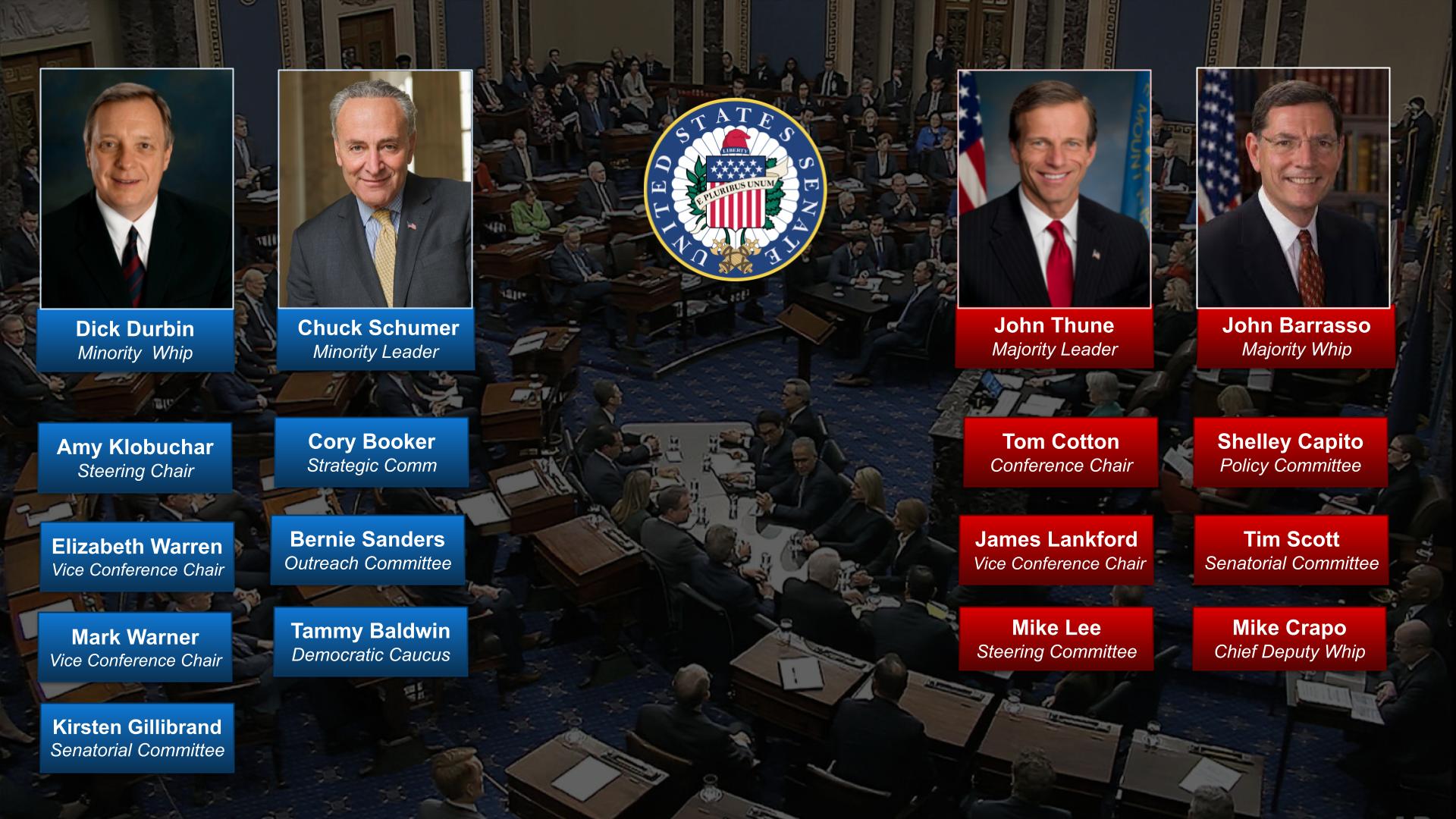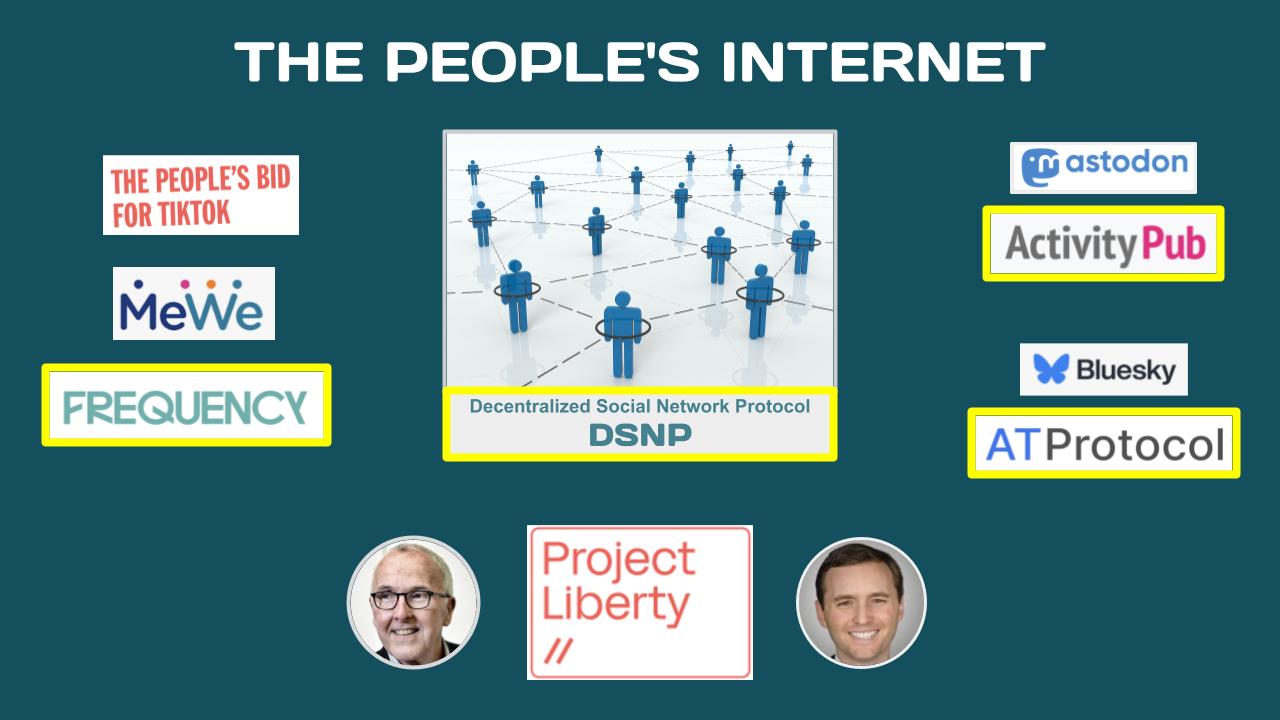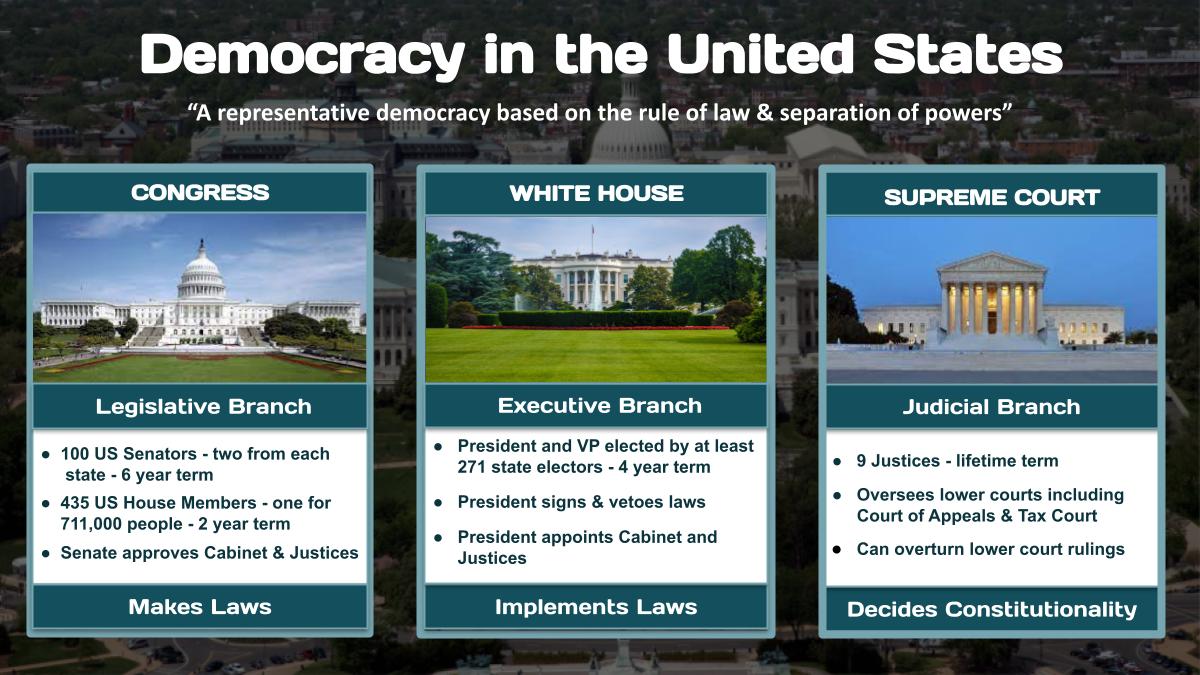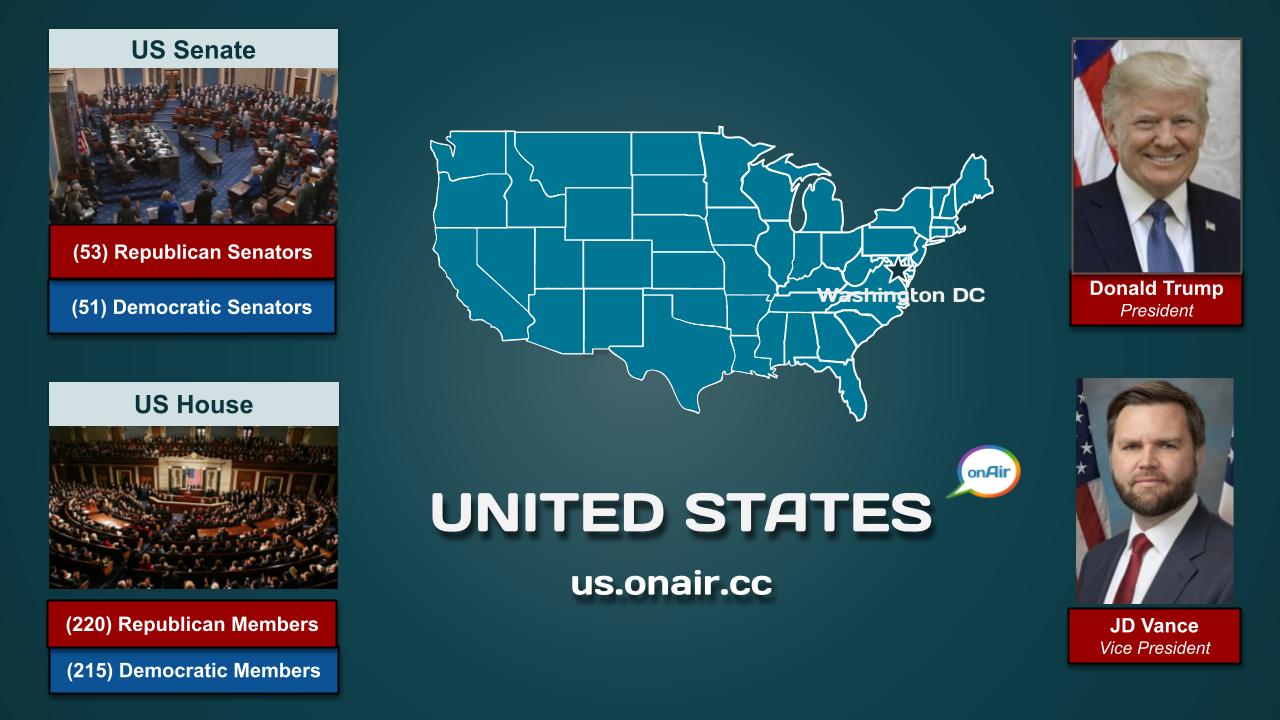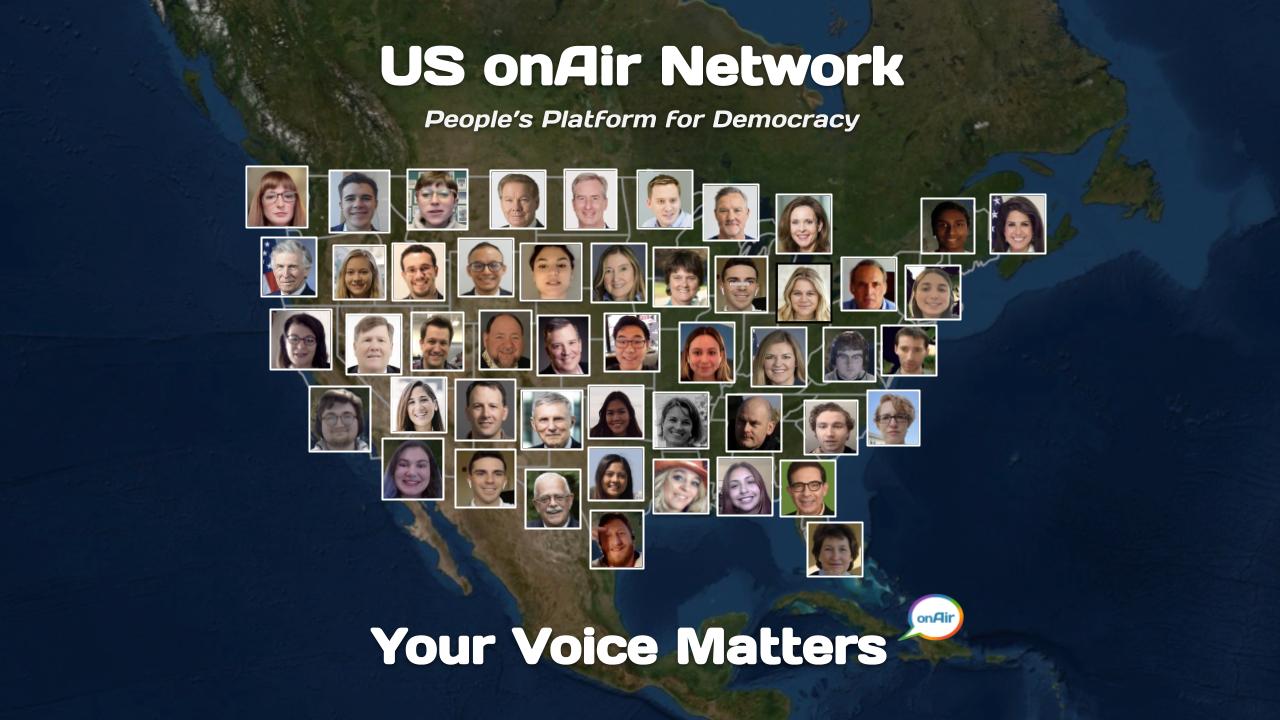News
The 119th United States Congress is the current term of the legislative branch of the United States federal government. It convened on January 3, 2025, during the final 17 days of Joe Biden’s presidency, and will end in 2027. It will meet during the first two years of Donald Trump’s second presidency.
Following the 2024 elections, the Republican Party won the majority in the Senate with 53 Republicans winning their races and 47 Democrats winning their races.
All the senators can be found in this slider organized alphabetically by state name.
OnAir Post: US Senate- 119th Congress
Senate Republicans – 119th Congress
The Senate Republican Conference is the formal organization of the Republican senators in the United States Senate. Over the last century, the mission of the conference has expanded and been shaped as a means of informing the media of the opinions and activities of Senate Republicans.
The Senate Republican Conference assists Republican senators by providing a full range of communications services including graphics, radio, television, and the Internet. Its chairman is Senator Tom Cotton,[1] and its vice chairman is Senator James Lankford.
OnAir Post: Senate Republicans – 119th Congress
Senate Democrats – 119th Congress
The central organizational front for Democrats in the Senate, its primary function is communicating the party’s message to all of its members under a single banner. The present chair of the Senate Democratic Caucus is Chuck Schumer of New York.
OnAir Post: Senate Democrats – 119th Congress
Today’s Smerconish Poll
Yes
No
Yesterday’s Poll Results
Associated Press
Senators ask Hegseth about tax returns, tattoos, diversity in the military at hearing
A new poll looks at how Americans feel about not having government experience
Recruitment and retention of troops is top of mind for senators throughout Hegseth’s hearing
Final chapter of the special counsel’s Jan. 6 case against Trump is now public. Here’s what to know
Links to AM Headlines
Axios AM Smerconish The Hill Morning Report CNN Breaking News
Links to PM Headlines
Links to other Headlines
Associated Press Digital Future Daily (Politico). NPR Politics
Top headlines
- Greenland isn’t for sale. If it were, the US would be a keen bidder
- Lightning strikes make caterpillar fungus-hunting a deadly pursuit
- Pet vaccine hesitancy is bad for dogs, cats and humans, too
Lead story
On Aug. 3, 1789, President George Washington dispatched a letter with the names of 139 nominees for “Collectors, Naval Officers and Surveyors for the Ports” to the Senate for confirmation. Included among them were Eppes Sergeant and Samuel Whittemore, Washington’s choices, respectively, for the posts of District & Port Collector and Surveyor in Gloucester, the Massachusetts fishing port where I live.
“Washington, the first president of the United States, operated from the assumption that the president and the Senate should be actively involved in approving even the lowest-level officials,” writes Washington University in St. Louis historian Peter Kastor. “After early nominations for the likes of Thomas Jefferson, the first secretary of state, and Alexander Hamilton, the first secretary of the Treasury, Washington personally nominated hundreds of customs collectors, low-ranking officers in the military and territorial officials.”
Kastor has spent almost 20 years studying the federal appointment process. As confirmation hearings begin in the Senate today for Donald Trump’s high-level appointees, Kastor’s look at how the confirmation process evolved collaboratively over almost 250 years provides a revealing window into the much more contested process now.
We’re providing this story along with more than a dozen – and counting – profiles of top administration positions. We’re not profiling Trump’s choices – you can find those stories elsewhere. Our stories describe the job of the secretary of the interior, or the director of national intelligence, attorney general or head of the FBI. You can then evaluate the Trump pick’s qualifications for the job.
Naomi Schalit, Senior Editor, Politics + Democracy
Politics + Society
When presidents would send handwritten lists of their nominees to the Senate, things were a lot different
The US now faces the likelihood of a bruising and raucous set of confirmation hearings − a clear break from the cooperative system the founders established.
Science + Technology
Environment + Energy
LA fires: Why fast wildfires and those started by human activities are more destructive and harder to contain
The causes of the wind-driven fires that burned thousands of homes in the Los Angeles area are under investigation, but there were no lightning strikes reported at the time.
Firefighting planes are dumping ocean water on the Los Angeles fires − why using saltwater is typically a last resort
In emergencies, dumping ocean water on fires may be the best option. But seawater can have long-term effects on equipment and ecosystems, as a novel coastal experiment shows.
International
4 reasons why the US might want to buy Greenland – if it were for sale, which it isn’t
The Danish-controlled island is coveted by some external actors who see the vast territory as a vector for precious minerals and great-power politics.
Economy + Business
We study aging family business incumbents who refuse to let go − here’s why the 2024 race felt familiar
Donald Trump is acting like the classic patriarch of a family business − and he’s not the only politician to do so.
What’s an H-1B visa? A brief history of the controversial program for skilled foreign workers
The struggle has yielded both compromises and new strips of red tape for more than 100 years.
Arts + Culture
Trending on site
PBS NewsHour, January 14, 2025 – 10:00 am to 1:00 pm (ET)
How technology shapes our perception
This is your brain on algorithms
The adage, “You are the average of the five people you spend the most time with” might need reconsideration in the digital age, particularly as Americans spend more time alone.
Today, we are more likely to be the average of the five platforms we spend the most time on or the five algorithms that inform our beliefs.
A study last month found that Gen Z thinks they need $500,000 a year to succeed (far more than the amount other generations believe is necessary to be successful). One hypothesis for this intergenerational disparity is the influence of social media. It can portray an aspirational life of luxury, encouraging young people to benchmark their idea of success to an unattainable ideal found online. This is not new to social media—television has done this for years—but the level of algorithm-driven personalization and monetization is more powerful than ever.
A study from 2021 found that the biggest predictor of a social media post going viral was a post about an out-group (i.e., the people who don’t belong to the in-group of people viewing the post). Posts about the opposing party were twice as likely to go viral as posts about one’s party, and the majority of those posts were negative. In short, according to the researchers, “out-group hate was a stronger driver of virality than in-group love.” This engagement-driven virality amplifies perceptions of our own righteousness while reinforcing negative views of those with whom we disagree.
TODAY’S SEGMENTS:
Dangerous winds pick up as crews battle devastating LA fires ![]() • Dangerous winds pick up as crews cont…
• Dangerous winds pick up as crews cont…
News Wrap: Biden defends legacy on world stage in address ![]() • News Wrap: Biden defends legacy on wo…
• News Wrap: Biden defends legacy on wo…
Ambassador says Canada prepared for any scenario with Trump ![]() • Canadian ambassador to U.S. on tensio…
• Canadian ambassador to U.S. on tensio…
What makes Greenland a strategic polar outpost ![]() • Why Trump wants Greenland and what ma…
• Why Trump wants Greenland and what ma…
Roger Carstens reflects on bringing detained Americans home ![]() • Hostage negotiator Roger Carstens ref…
• Hostage negotiator Roger Carstens ref…
Hegseth hearings to begin amid sexual misconduct accusations ![]() • Hegseth confirmation hearings to begi…
• Hegseth confirmation hearings to begi…
Tamara Keith and Andrew Desiderio on wildfire politicization ![]() • Tamara Keith and Andrew Desiderio on …
• Tamara Keith and Andrew Desiderio on …
Today, a group of former Twitter users who are fed up by the platform’s decline under billionaire control, are launching a new campaign to transform social media into a public good, free from profit-driven incentives, venture capital pressure, and politically-motivated censorship.
The project is called “FreeOurFeeds,” and it has launched with the support of big names including actor Mark Ruffalo, writer Cory Doctorow, businessman Roger McNamee, director Alex Winter, and others.
FreeOurFeeds aims to build a new social media ecosystem on top of the AT Protocol, an open, decentralized framework designed to enable interoperable social media platforms, giving users greater control over their data, algorithms, and online experience (it’s what Bluesky runs on). They want to leverage this tech to create a social media ecosystem focused on individual control, creativity, community well-being, and free expression.
The Sustainable Media Substackhttps://sustainablemedia.substack.com/p/5-bold-predictions-for-social-media, – January 7, 2025
1. TikTok will sell.
That being said, the “people’s bid” led by Frank McCourt’s Project Liberty offers a new way to imagine TikTok.The Decentralized Social Networking Protocol (DSNP) empowers users with full ownership of their data, prioritizing privacy, transparency, and interoperability across platforms by eliminating central control and adopting fair monetization models.
Today Kevin O’Leary, known to millions as Shark Tank’s “Mr. Wonderful,” joined forces with the “people’s bid.” O’Leary’s crowdfunding effort for individuals to register interest at WonderfulTikTok.com will now be folded into the “people’s bid,” which will help ensure individuals and small businesses have a stake in the future of TikTok. This makes the McCourt effort a growing force for change.
2. Gen Z will pioneer new digital spaces.The exodus from mainstream social media will accelerate in 2025 as Gen Z abandons algorithm-driven platforms for more authentic digital spaces. Rejecting the passive consumption model of traditional social networks, young users will gravitate toward intimate communities built around shared values and active participation. Five distinct types of platforms will emerge to serve this shift: Truth-Seeking Communities where transparent communication and fact-checking reign supreme; Ethical Digital Communes organized around sustainability and social justice; Mobilization Networks enabling rapid organization around causes; Value-Based Commerce Spaces that blend conscious consumption with community building; and Dialog-Driven Platforms fostering genuine discussion over viral content. These emerging spaces will fundamentally challenge current social paradigms by prioritizing genuine connection over engagement metrics and community impact over individual influence.
Key Predictions:
- Small-group platforms limiting communities to 100-200 members will see rapid adoption.
- At least three major niche platforms will reach 10 million monthly active users by focusing on authentic connection over scale.
- Real-time, ephemeral content will replace algorithmic feeds as the primary form of communication.
- User-owned communities will emerge, with governance and moderation controlled by members.
- Traditional influencer marketing will decline as peer-to-peer recommendations become the dominant form of social commerce.
Better Conflict Bulletin, – January 9, 2025
Meta says it will stop fact checking, but this shouldn’t be confused with content moderation. Almost all content that is removed—millions of items per day—is reviewed by armies of content moderators (Meta says 40,000 of them) and related AI systems, not fact checkers.
While moderation does target some politically contentious items such as hate speech and health misinformation, mostly it removes fraud, spam, harassment, sexual material, graphic violence, and so on. Zuckerberg said that certain content moderation rules will be relaxed and the teams involved will move to Texas, but the massive operation appears otherwise unchanged. The update to moderation rules may turn out to be the most impactful change by far.
Benedict Evans, in his weekly newsletter about technology recommended this article last year by Vitalik Buterin (co-founder of Etherium). “Vitalik Buterin’s thoughts on Twitter’s Community Notes, a collective voting system that’s exactly the kind of thing that Web3 people want to build.”
Community Notes is a fact-checking tool that sometimes attaches context notes, like the one on Elon’s tweet above, to tweets as a fact-checking and anti-misinformation tool. It was originally called Birdwatch, and was first rolled out as a pilot project in January 2021. Since then, it has expanded in stages, with the most rapid phase of its expansion coinciding with Twitter’s takeover by Elon last year. Today, Community Notes appear frequently on tweets that get a very large audience on Twitter, including those on contentious political topics. And both in my view, and in the view of many people across the political spectrum I talk to, the notes, when they appear, are informative and valuable.
But what interests me most about Community Notes is how, despite not being a “crypto project”, it might be the closest thing to an instantiation of “crypto values” that we have seen in the mainstream world. Community Notes are not written or curated by some centrally selected set of experts; rather, they can be written and voted on by anyone, and which notes are shown or not shown is decided entirely by an open source algorithm. The Twitter site has a detailed and extensive guide describing how the algorithm works, and you can download the data containing which notes and votes have been published, run the algorithm locally, and verify that the output matches what is visible on the Twitter site. It’s not perfect, but it’s surprisingly close to satisfying the ideal of credible neutrality, all while being impressively useful, even under contentious conditions, at the same time.
It’s a fact that our overlords would prefer we forget: all power comes from the people
All power comes from the people. If it were not for human cooperation there would be no wealth. The masses working together is the fundamental power that has led to humankind’s dominance in the world. Crucially, such shared intentionality has allowed many of us to rise above mere survival considerations and, as such, we all have a vested interest in its continuation.
Trump has said he wants to use active duty U.S. troops to quell protests and round up immigrants. Will the military comply?
“There was real sensitivity about keeping federal troops away from the front lines,” said Ollivant, who was ordered in by President George H.W. Bush as rioters in central-south LA set fire to buildings, assaulted police and bystanders, pelted cars with rocks and smashed store windows in the aftermath of the videotaped police beating of Rodney King, a Black motorist. “They tried to keep us in support roles, backing up the police.”
By the end of six days of rioting, 63 people were dead and 2,383 injured — though reportedly none at the hands of the military.
But some in the U.S. military fear next time could be different. According to nearly a dozen retired officers and current military lawyers, as well as scholars who teach at West Point and Annapolis, an intense if quiet debate is underway inside the U.S. military community about what orders it would be obliged to obey if President-elect Donald Trump decides to follow through on his previous warnings that he might deploy troops against what he deems domestic threats, including political enemies, dissenters and immigrants.
Before I get there: Yes, California has problems, some of them big. There are pockets of social disorder, although the fact that so many luxury homes are burning tells us that many people who could live anywhere find greater Los Angeles a highly desirable place to be. More important, California suffers terribly from NIMBYism, which has led to grossly inadequate home construction, crippling housing costs and a lot of homelessness.
But California is nonetheless an economic and technological powerhouse; without it America would be a lot poorer and weaker than it is.
Most narrowly, at a time when Donald Trump is making nonsensical claims that America is subsidizing Canada via our bilateral trade deficit, California is literally subsidizing the rest of the United States, red states in particular, through the federal budget.
PBS NewsHour, January 13, 2025 – 3:00 pm to 9:00 pm (ET)
As Trump’s big-tent GOP returns to power, Bannon and Musk have served as a prime example of the infighting already underway.
Bannon, a former chief strategist for Trump and host of the “War Room” podcast, told POLITICO White House bureau chief Dasha Burns that Musk has had some influence over Cabinet picks and policy discussions but that he doesn’t “have the ability to actually make decisions and inform those decisions and drive those decisions.”
As Trump’s big-tent GOP returns to power, Bannon and Musk have served as a prime example of the infighting already underway — and the challenges it will pose to the incoming president. Allies argue that it offers an early reminder of the incoming president’s governing style, a way for Trump to retain his decision making power, while ensuring no one faction gains too much control.
OpenAI has expanded its policy footprint significantly over the past year, publishing a “blueprint” for AI infrastructure development in November and setting up shop in capitals across Europe.
This morning the company published another such “blueprint,” this time focusing on competition with China and domestic safety concerns. It’s one more example of the biggest AI developers trying to shape the policy conversation around everything from energy to defense and national security, as their technologies inch toward the center of it — and a hawkish second Trump administration is set to take office.
OpenAI has been a major proponent of the idea that AI is a civilizationally game-changing technology (approaching “artificial general intelligence,” in industry parlance). Initially, its CEO Sam Altman loudly stumped in Washington for regulation of the biggest and most powerful systems; more recently the company has been pushing an expansionist line. Now Elon Musk, one of the company’s co-founders (who has his own AI company and has become arguably OpenAI’s most bitter foe), is poised to wield major influence in the second Trump White House, raising questions about what kind of powerful frenemy he might be.
President-elect Trump has said he wants to slap aggressive tariffs on all sorts of U.S. imports as soon as Day 1 of his administration. But taking shock-and-awe action would come with meaningful economic, political and legal risks.
Why it matters: Trump will have to decide whether to turn to the tried-and-true tools to implement tariffs he used when he was last in office — which are powerful, but take time and care to enact — or rip up the playbook.
What to watch: Speedier tariffs could also mean speedier retaliation from major allies that might take a huge toll on domestic producers
Flashback: Trump 1.0 relied on legal authorities that required months-long investigations and comment periods before the administration could impose double-digit tariffs on imports from China and elsewhere.
Persuasion, – January 13, 2025
Heterodoxy deserves to be a thriving part of our intellectual culture. Here’s what that requires.
There are very many ways to parse the 2024 election, but one of its features is that it was the first election in which “heterodoxy” played a prominent role.
Actually, it could be argued that it was the heterodox election. Most of the figures associated with heterodoxy—Bari Weiss, Matt Taibbi, Michael Shellenberger, etc.—have fairly niche audiences that are unlikely to have reached low-information undecided voters in swing states, but that’s the not the case for Joe Rogan, the Emperor of Heterodoxy. And, in post-election analysis, it’s Harris’ decision to skip out on an interview with Rogan—in large part because her staffers and the Democratic Party in general seemed to have trouble understanding Rogan’s appeal or influence—that emerges as the single greatest miscue of her campaign.
That should make you trust official statistics more
Data get revised for good reasons, and the US does it the right way
Lots of principal economic indicators get revised in the months (and sometimes years) after their initial release. Most revisions are an attempt to square timeliness and accuracy: Initial data are based on what’s known or available quickly, and revisions incorporate additional inputs or information that take more time to collect or calculate. Here are three reasons for data revisions:
Yes, but not for the reasons Marxists think.
Should economists all be required to read, “work through”, and understand Adam Smith and Karl Marx? Is the discipline “fake” because most haven’t done this?
First of all, it’s important to point out that studying history of thought isn’t always useful. Just as doctors usually don’t study the works of Galen, and physicists usually don’t read Isaac Newton, economists don’t really have to read the original works of Alfred Marshall to understand supply and demand, or read John Nash’s original papers to understand game theory. The most useful concepts in science stand alone, divorced from the thought process of their originators. This is why they’re so powerful — anyone can just pick up Newton’s Laws or Nash Equilibrium and just use them to solve real-world problems, without knowing where those tools came from.
Some of Donald Trump’s most controversial Cabinet picks will be trying to win over the Senate next week. It comes as Trump threatens allies and friends from Denmark to Panama, giving new meaning to “America First.” Join moderator Jeffrey Goldberg, Laura Barrón-López of PBS News Hour, Carl Hulse of The New York Times, Tom Nichols of The Atlantic, and Vivian Salama of The Wall Street Journal to discuss this and more.
PBS NewsHour, January 3, 2025 – 10:00 am (ET)
PBS NewsHour – January 13, 2025 (05:37)
In our news wrap Monday, President Biden defended his legacy on the world stage during an address at the State Department, the White House proposed export limits on computer chips used in artificial intelligence, China’s exports grew sharply as companies rushed to lock in orders ahead of Trump’s return and at least 100 people mining in South Africa died after being trapped underground for months.
Today’s Smerconish Poll
Yesterday’s Poll Results
Associated Press
Los Angeles wildfires live updates: Authorities investigate cause of deadly wildfires
Judge clears the way for release of special counsel Smith’s report on Trump’s 2020 election case
Some Israeli soldiers refuse to keep fighting in Gaza
Elon Musk says a third patient got a Neuralink brain implant. The work is part of a booming field
Special counsel Jack Smith has resigned after submitting his Trump report, Justice Department says
Significant progress made in talks over Israel-Hamas ceasefire and hostage release, officials say
Links to AM Headlines
Axios AM Smerconish The Hill Morning Report CNN Breaking News
Links to PM Headlines
Links to other Headlines
Associated Press Digital Future Daily (Politico). NPR Politics
Top headlines
Lead story Genetics influences a number of traits beyond your control: the color of your eyes, the angle of your ears, the curl of your tongue. For many other traits, however, social and environmental factors play a substantially larger role than the genes you’re born with – the material resources you have can make it easier or harder to pursue higher education, or the sports training you’ve undergone conditions your performance in competition. Genes alone don’t determine someone’s likelihood to commit a crime or their socioeconomic status. But President-elect Donald Trump has pledged to enact mass deportations upon assuming office, claiming to protect the American public from immigrants bringing “bad genes” into the country. With this week’s confirmation hearing for the secretary of Homeland Security – the government official leading U.S. immigration policy – disentangling rhetoric from evidence is key to getting a clear picture of what’s at stake. In today’s lead story, Shoumita Dasgupta, a geneticist at Boston University, explains America’s long history of misusing biology to justify violent acts and biased laws. “Attempting to use science to explain human difference in ways that reinforce social hierarchies isn’t new,” Dasgupta writes. “It takes the playbooks of genetic essentialism and scientific racism and applies them to public policy.” Mass deportations don’t keep out ‘bad genes’ − they use scientific racism to justify biased immigration policiesThe US has a long history of misusing genetics and biology in immigration policy, the effects of which are still keenly felt today. Environment + Energy
Politics + Society
Economy + Business
Science + Technology
|
The US onAir Network supports US citizens and democracy by bringing together information, experts, organizations, policy makers, and the public to facilitate greater engagement in federal, state, and local politics and more civil, positive discussions and collaborations on important issues and governance.
The US onAir Network has a national hub at us.onair.cc and 50 state onAir hubs. To learn more about the US onAir Network, go to this post.
ABOUT US ONAIR NEWS
The first news items on US issues, government, and politics will start being displayed on the US onAir homepage around 9 am. Throughout the day, livestreamed events will appear under the “Latest” tab. The last news items will appear around 9 pm concluding with PBS NewsHour’s full episode with links to each video clip within the hour show. Go to the Free News Platforms post to learn more where we draw most of our US onAir news content and how to find previous daily news posts.
US ONAIR SUBSTACK
US onAir has established a substack at usonair.substack.com to provide substack subscribers a way to receive these news posts within a phone app and via email. Comments on news items can be made in the substack post. OnAir members can comment in this onAir post and/or in specific related onAir posts. Substack posts are delivered by email around 9pm Monday thru Friday.
